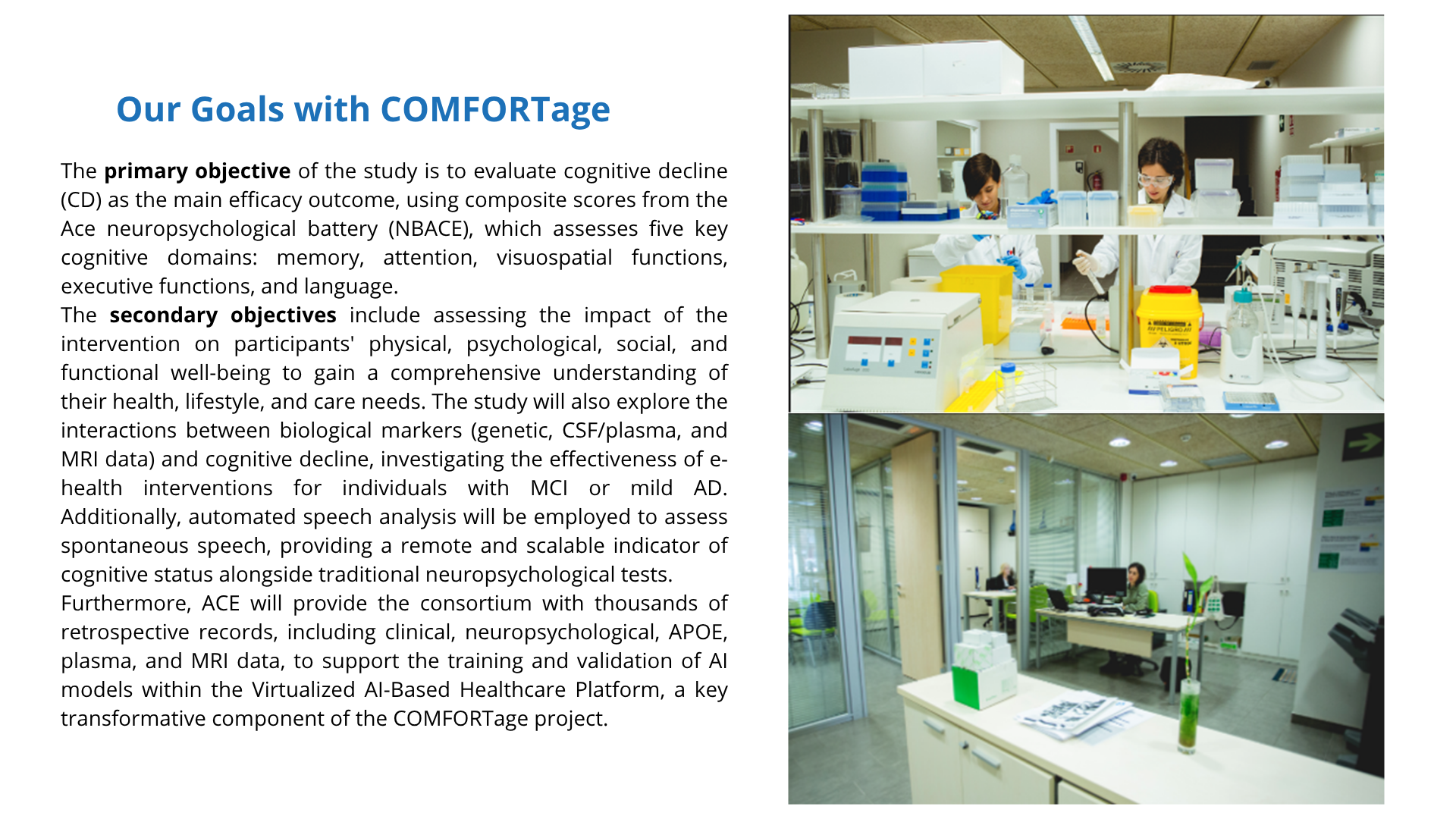Frailty and sarcopenia, often present years before Alzheimer’s disease (AD), manifest as poor physical health symptoms like balance issues, body weakness, and gait problems. The link between these early signs and dementia development is under-researched. This pilot aims to identify early risk factors to prevent cognitive decline and improve self-management and quality of life in older adults. The study will involve older adults diagnosed with frailty, sarcopenia, and healthy controls. Data collection will include physical measurements, neuropsychological evaluations, gait analysis, heart rate biomarkers, and lifestyle metrics like nutrition. The findings will help design a roadmap to prevent cognitive decline by identifying biomarkers and risk factors for early intervention and personalised healthcare plans.
Title: Early identification of dementia on patients with early signs of sarcopenia and frailty
Partner: AUTH
Type:Interventional study (multimodal intervention)
Target: Frail Older Adults and Healthy older adults
Focus: 1)Preventing or mitigating cognitive decline and frailty in older adults. “)Identifying early risk factors for cognitive impairment through longitudinal monitoring and analysis.
Type of prevention targeted: Primary prevention (aims to prevent cognitive decline in individuals identified at risk). Secondary prevention (early identification of risk factors)
Objective: Evaluate the impact of a digitally supported, multimodal intervention on cognitive decline and frailty & early identification of risk factors for cognitive decline.


